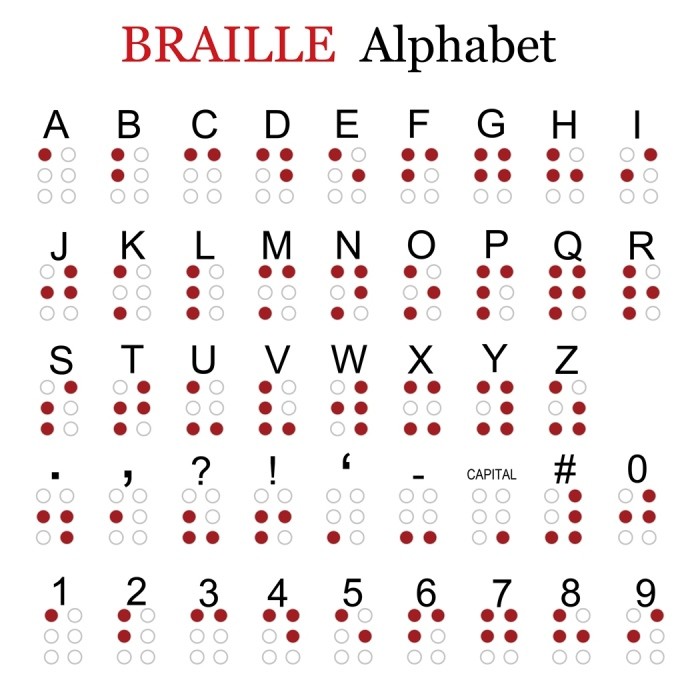This month we are celebrating Louis Braille.
Key Facts
LouisBraille was born in France on 4th January 1809. When he was just three years old, he had an accident whilst playing with his dads workshop tools, which resulted in an infection spreading to both eyes. Eventually, he was totally blind. At that time, there were few resources for the blind and visually impaired. Despite this, Braille excelled in his academic studies and eventually received a scholarship to study at the Royal Institute for Blind Youth in France. As a student there, he began developing a system using tactile dots as code. This would allow blind people to read, write and communicate quickly and efficiently.
Braille’s system was presented to peers in 1824.
As an adult, Braille taught as a professor at the Institute, but mostly devoted his time to refining, improving and extending his system. It has since been adapted for use in other languages worldwide.
Activity Ideas
Most people are aware of the method of reading and writing using Braille.Many of your residents will have experienced sight loss to some extent. Take time today to explore ways of providing better ways of communicating and maintaining their independence as well as understanding between staff members.
- Using Braille
Have a go at using the Braille alphabet with your residents. Use raised bump dots (available from the RNIB https://shop.rnib.org.uk/bump-dots-mixed-colour-and-shape-pack.html ) and help your residents to make up their name, or initials.
- Play What’s InThe Bag?
This is a great and simple game to play as a group activity.
You will need some bags (cloth ones are great, but you could use paper if necessary) and everyday items such as clothes pegs, pens, an apple, a 50p coin, a teddy bear… In fact, anything without sharp edges is suitable to use in this game.
To play the game, pass the bag around between residents. Each individual should place their hand into the bag, and explore the object using only their fingers. Challenge each person to identify the object, before revealing it to the group.
- Supporting residents with sight loss
The RNIB and companies such as Calibre offer a library service for talking books usually for a very small initial joining fee. They will also provide you with a player to use with their memory sticks. This is a very simple device with one large on/off button and volume control. The sticks are sent to your resident in the post and on return a new book will be issued.
This is a great way for individuals to continue to enjoy books when they can no longer see to read even large print books.
- Supporting Charities
Contact Guide Dogs for the Blind. They may be willing to come along with one of their trainee dogs and give a demonstration for a donation.
You could consider adopting them as your charity for the year! Involve your residents in arranging a fundraising event, such as a coffee morning, a sponsored challenge, or a raffle.
The RNIB offer great support to those individuals who are registered blind or partially sighted. Explore their website to see what they offer free of charge.If you have a resident who wants sheet music printed in large print, they will also do this for them!




